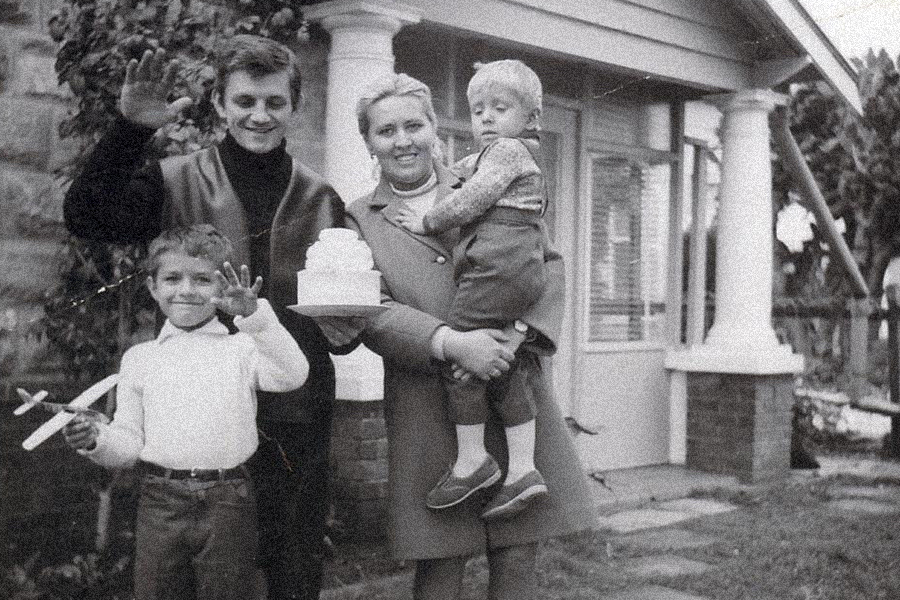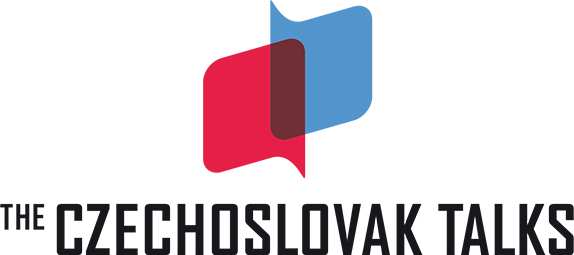
Vlastimil Skvaril
From the very start, the problem I had in the communistic Czechoslovakia was that my parents encouraged us to be honest and truthful. We wouldn’t be deterred, even when they fired my father from the police force and he could only work as an unqualified labourer after. Mother was next, she was found too politically unreliable to continue teaching in kindergarten.
I graduated from a secondary technical school focused on diary production in Kroměříž without any problems and then I was sent to a diary plant in Liberec where I worked for a year. After I completed military service as a health instructor, I started working in a diary plant in Hodonín. I refused to join the Communist Party of Czechoslovakia so I wasn’t entitled to any bonus payments and I could forget about a promotion.
But then it was August 21, 1968. My father woke me up at 6 in the morning and told me we were invaded by the Warsaw pack troops. We sat on the stairs and cried.
But then it was August 21, 1968. My father woke me up at 6 in the morning and told me we were invaded by the Warsaw pack troops. We sat on the stairs and cried. After a while we joined the thousands of people protesting against the tanks and armies. Then I ran home, filled a bucket with whitewash and began painting over signs. We felt strong, united and we hoped we would eventually win and win back Dubček’s reforms.
It took the Russians almost a year before they quashed all of them completely. I knew I wouldn’t be able to be “normalized” and that I had a choice: either leave or end up in prison. The police already had an eye on me.

In September 1969, after lengthy preparation, I decided to emigrate together with my wife Jožka, two sons, Vlastík and Petr and my friend Zdeněk. The harrowing journey led us through Austria to Australia. We boarded a Boeing 707, leased by Australian government.
It was the 28th of September, 1969 and 168 refugees from Czechoslovakia set off into the unknown. Only one of us spoke English and we knew next to nothing about Australia. Just that it was a free country and that was enough for us. We were surprised that it was cold there and that we couldn’t understand a word at first. I started working for an ice-cream company called Amscol in Adelaide.
After a while I got a job offer from Milan Vyhnálek, who is possibly the best known Czech person in Tasmania and the owner of the Lactos company which produces cheese. We moved to Burnie, a city where the next stage of our Australian adventure began. I worked at the cheese factory and then we leased a general store and bistro. We signed an agreement for 8 years and got to work. From the very start, our motto was: “A costumer gets what a customer wants”. We were open seven days a week, Monday to Thursday from 8 am to 8 pm and Fridays and the weekends from 8 to midnight. We didn’t close for a single day for 8 years.
When our store lease was nearing the end of its term, Mr. Vyhnálek approached me again with an offer to become his partner in a new cheese factory. Life brought along more opportunities, I was a real estate agent for a while, for instance, but I always ended up back in the cheese making business. In the mid-1980’s me and my wife leased another grocery store, so there was always enough work to do.
After a while I got a job offer from Milan Vyhnálek, who is possibly the best known Czech person in Tasmania and the owner of the Lactos company which produces cheese. We moved to Burnie, a city where the next stage of our Australian adventure began.
I retired at 67 but I definitely didn’t intend to laze about. It was only when I was about to turn sixty years old when I fell in love with running and it became the passion of my life, along with my great, big family. I completed a 6000 km long run across Australia, for instance.
It took 100 days and I ran 60 km a day without a day off. I’ve run all over Australia a few times. My wife Jožka always accompanies me in our Nissan Urvan van from 1984 with no air conditioning or exercise machine. I’ve run on highways, across big cities, on dusty roads across deserts and wilderness.



